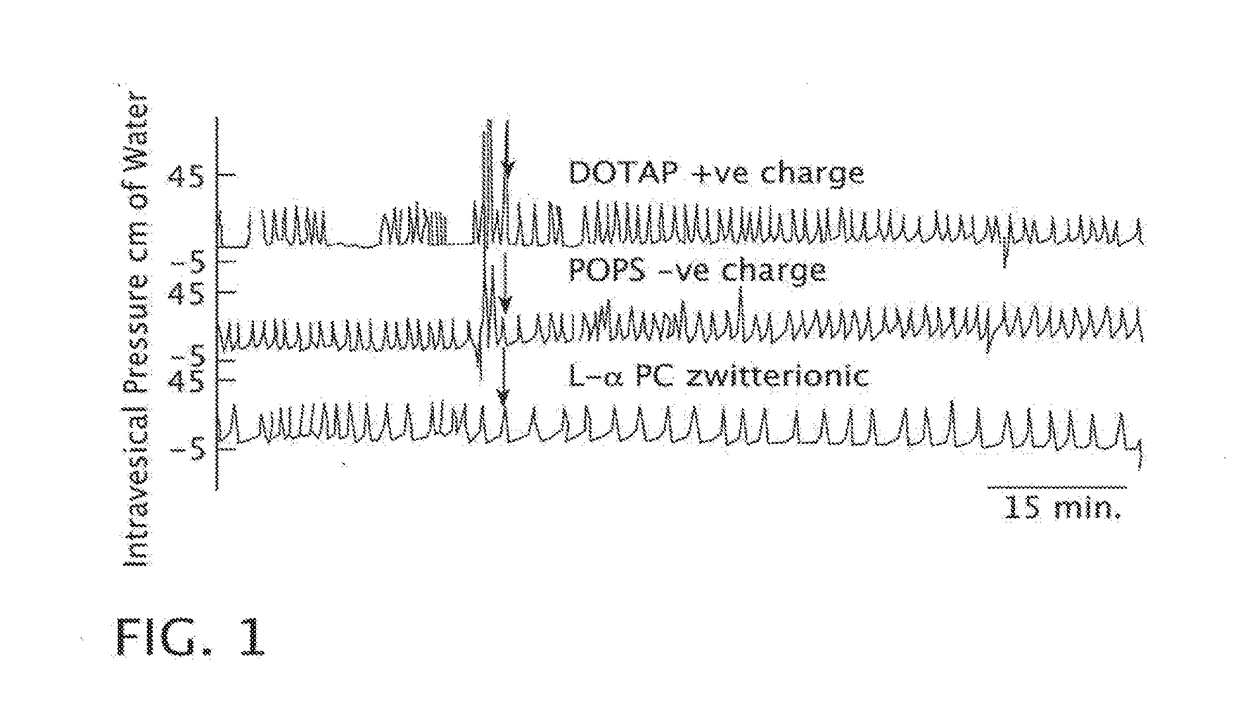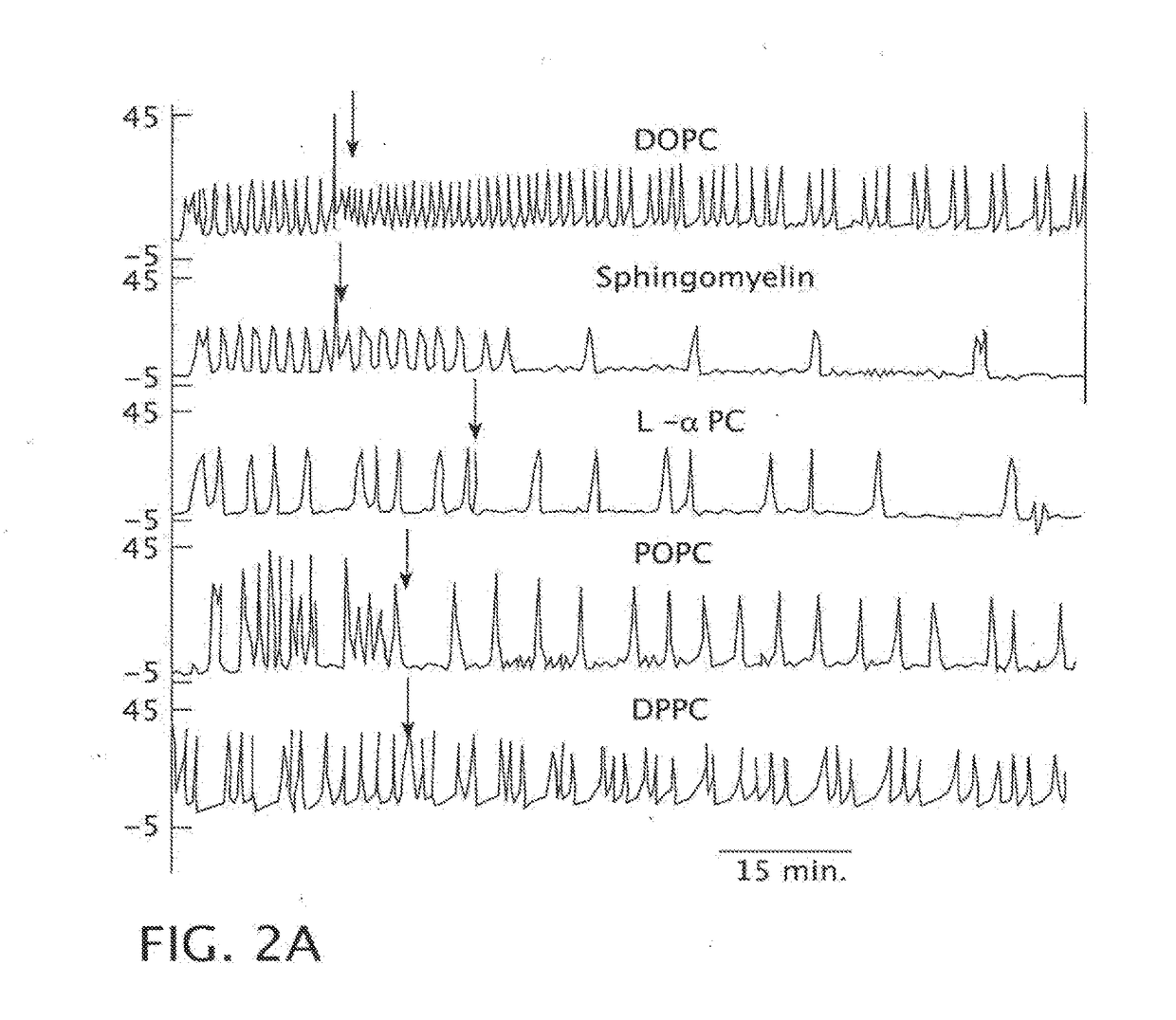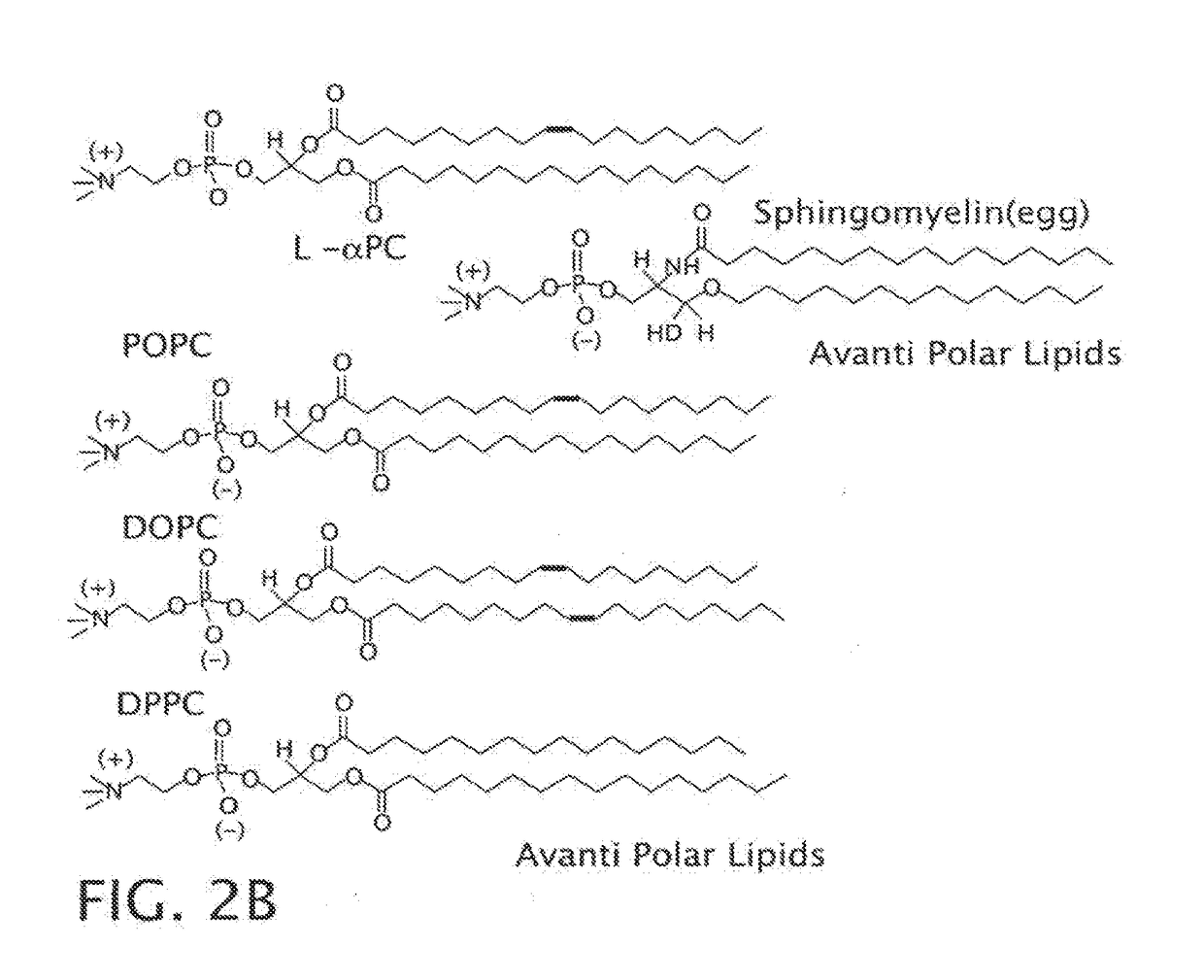Sphingomyelin liposomes for the treatment of hyperactive bladder disorders
a hyperactive bladder and sphingomyelin technology, applied in liposomal delivery, drug compositions, medical preparations, etc., can solve the problems of poor patient compliance, high out rate, and patients being treated with antibiotics for urinary tract bacterial infections without relief, so as to reduce or prevent antibody-mediated resistance to antigenic therapeutic agents, the effect of easing irritation
- Summary
- Abstract
- Description
- Claims
- Application Information
AI Technical Summary
Benefits of technology
Problems solved by technology
Method used
Image
Examples
example 1
[0169]The optimal lipid characteristics (e.g., head groups, length and degree of saturation) for making lipid vehicles of the present invention were determined, as well as the effect of lipid headgroup charge in reducing bladder hyperactivity
Materials and Methods
[0170]Bladder reflex activity in thirty-four (34) female Sprague-Dawley rats (200-250 g) was studied by cystometry performed under anesthesia with urethane (1.2 g / kg) administered by subcutaneous injection. Body temperature was maintained in the physiologic range using a heating lamp. A transurethral bladder catheter (PE-50) connected by a three-way stopcock to a pressure transducer and to a syringe pump was used to record intravesical pressure and to infuse solutions into the bladder. A control cystometrogram (CMG) was performed by slowly filling the bladder with saline at a rate of 0.04 ml / min to elicit repetitive voiding. The bladder contraction frequency of the reflex bladder contractions were recorded. After performing ...
example 2
[0176]This example demonstrates the effect of sphingomyelin liposomes in reducing bladder hyperactivity.
Material and Methods
[0177]Neutrally charged liposomes prepared with sphingomyelin were compared against liposomes prepared from dihydrosphingomyelin and two pure synthetic lipids: 1,2-distearoyl-sn-glycero-3-phosphocholine (DSPC) and 1,-oleoyl-2-stearoyl-sn-glycero-3-phosphocholine (OSPC).
[0178]The methodology of this investigation is the same as described above in Example 1 with the exception that the preparation of liposomes was modified from Example 1. Briefly, liposomes were constructed as a 2:1 molar ratio of sphingomyelin and cholesterol (Sigma Chemical Co., St. Louis, Mo.) to a final lipid concentration of 1-2 mg / ml in saline. Lipids in chloroform were dried down together in the proper ratio under nitrogen. The residues were reconstituted as liposomes in saline or 500 mM KCl by intense sonication. This lipid composition produced sphingomyelin liposomes with no net charge.
Re...
example 3
[0180]This example demonstrates the effect of DSPC liposomes formulated with sphingomyelin or sphingomyelin metabolites on bladder hyperactivity.
Materials and Methods
[0181]Sphingomyelin devoid of its phosphorylcholine head group generates the molecule ceramide, a well known lipid second messenger which mediates a wide range of cellular responses to external stimuli, and also is used for the biosynthesis of sphingomyelin and glycosphingolipids. Because ceramide cannot form stable liposomes by itself, its effect on bladder hyperactivity was tested by including it at 1 mol % in an inert lipid, namely, 1,2-distearoyl-sn-glycero-3-phosphocholine (DSPC).
[0182]The methodology of this investigation is the same as described above in Example 1 with the exception that the preparation of liposomes was modified from Example 1. Briefly, liposomes were constructed as a 2:1 molar ratio of DSPC / sphingomyelin and cholesterol, DSPC / ceramide and cholesterol, DSPC / sphingosine and cholesterol or DSPC / sph...
PUM
 Login to View More
Login to View More Abstract
Description
Claims
Application Information
 Login to View More
Login to View More - R&D
- Intellectual Property
- Life Sciences
- Materials
- Tech Scout
- Unparalleled Data Quality
- Higher Quality Content
- 60% Fewer Hallucinations
Browse by: Latest US Patents, China's latest patents, Technical Efficacy Thesaurus, Application Domain, Technology Topic, Popular Technical Reports.
© 2025 PatSnap. All rights reserved.Legal|Privacy policy|Modern Slavery Act Transparency Statement|Sitemap|About US| Contact US: help@patsnap.com



